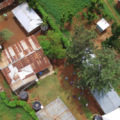Johannesburg – South Africa must strengthen the industrial arm of its economy if it is to successfully weather the fallout from the ominous Eurozone crisis, says Trade and Industry Director-General Lionel October.
Speaking at the inaugural Economic Policy Dialogue hosted by the department and the University of the Witwatersrand (Wits), October said the crisis unfolding in the European Union (EU) – SA’s largest trading partner – lent credence to the importance of a robust industrial sector to a country’s ability to survive harsh economic downturn.
“Why is there differential performance in the Eurozone? Why are some countries doing well and others failing? … Those who are surviving are those who have a robust industrial base. SA must have a coherent response so as not to suffer a knock as we did [in the last recession],” said October on Monday.
The dialogue, which will be hosted on a quarterly basis, was the first in a series that the department will take around the country in search of dynamic interaction between government and stakeholders in the economy.
October said the department hoped the dialogue would spark meaningful and relevant debate that would forge a deeper understanding of the situation in the Eurozone.
“We need to understand the real causes of this crisis… so far, it’s superficial,” said October, adding that the analysis of the situation to date had been tantamount to a “blame game” where the finger was pointed at external factors.
The session comes as the country and the international community formulate responses to the Eurozone crisis, which the world is watching with keen interest since the results of Greece’s parliamentary elections revealed a result that has been welcomed as a show of that nation’s desire to stay in the Eurozone.
The New Democracy party, led by Antonis Samaras, claimed victory in Sunday’s parliamentary vote by 29.66%, beating radical left Syriza’s 26.89%, which is strongly opposed to the austerity measures that are imposed as part of that country’s bailout.
Citing the case of Germany, the leader of the Northern European creditor nations and whose economy has a strong industrial base, October said South Africa had to be prudent in the steps it took to cushion itself from the imminent ripple effect.
South Africa lost approximately one million jobs in the last recession, the bulk of which were in the manufacturing sector, which remains the second largest sector, contributing over 15% of total output and consists of 13% non-farming jobs.
Globally, over 30 million people have lost access to a secure income as a result of financial instability – a cause of great concern for chief economist and Global Head of Research for the Standard Bank Group, Goolam Ballim.
Addressing the session, Ballim partly attributed the current crisis to several factors, chief amongst which are high levels of indebtedness in developed nations; trade imbalances; and the ageing population in European countries, leading to a shrinking workforce.
Ballim said there were key lessons for South Africa to take from this economic crisis. He noted the extent to which decision-makers in the global financial system inadequately took into account what experts often referred to as “network externalities”.
“We failed to understand the manner in which the world has become a village… Over the last 40 years, the movement of goods, money and services has become more fluid,” said Ballim.
He said the extent of “imperfect and incomplete” information accessible to market participants exacerbated the situation, often leading to risks being miscalculated.
In order to strengthen its position in an ever increasingly competitive global market, Ballim urged South Africa to strengthen its trade links with the continent.
He said over the last 10 years, SA’s trade with the rest of Africa had surged from around R70 billion to R220 billion, with a trade surplus of R40 billion (excluding the Southern African Customs Union countries).
However, he noted that SA had great scope for exporting value-added products as over half of the country’s exports to the continent were industrial based.
Echoing Ballim’s sentiments, Professor Gabriel Palma, a senior lecturer at the Faculty of Economics at Cambridge University, said South Africa had to foster a culture of home-grown development before looking to external sources of stimuli.
He cautioned against a heavy reliance on foreign direct investment (FDI), while the domestic investment rate remained low.
“Don’t expect FDI to do what you cannot do domestically,” he said, adding that it was an uncertain source of funding.
He said the Eurozone crisis forced the world to look at the global financial system with a fresh set of eyes, as the “boundless” manner in which institutions were willing to lend – and cheaply so – made it possible for a country like Greece to borrow at unsustainable levels.
“Finance only works when it’s linked to the real economy. When that link is broken, you have [the situation] we have today,” said Palma. – BuaNews













[…] SA must bolster industrial base to weather economic crisis is a post from: South Africa Business […]